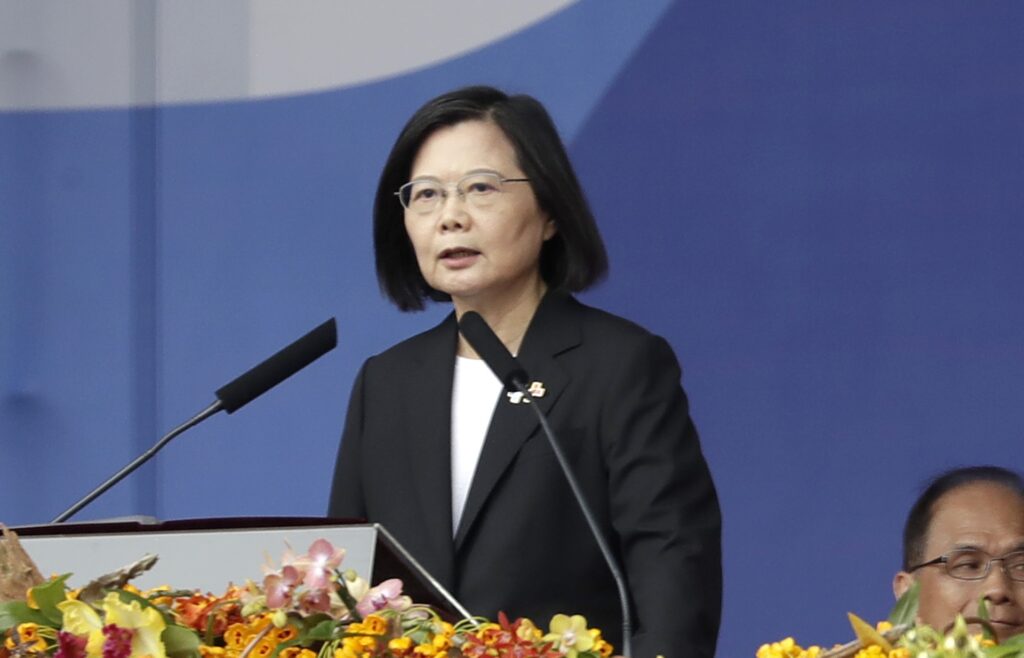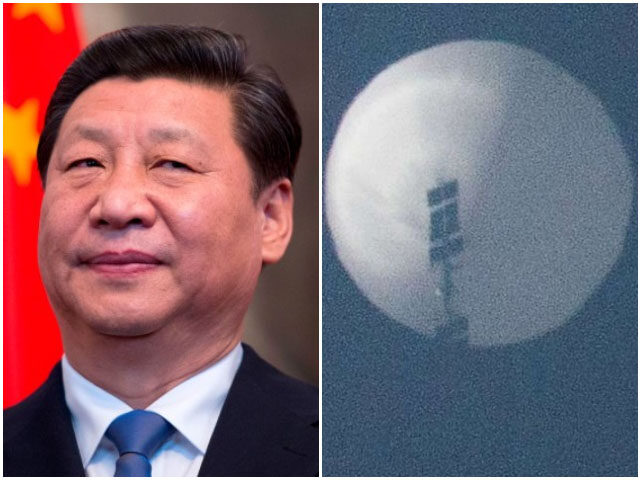China’s state-run Global Times on Thursday mocked Taiwanese and U.S. media for being concerned about “harmless weather balloons flying over the island.”
Three such balloons made an unusual transit over the middle of Taiwan Island on Monday and Tuesday, coming close to a Taiwanese airbase. The Taiwanese Defense Ministry merely stated it would “closely monitor” the balloons, and all other objects that enter Taiwanese airspace.
RELATED VIDEO — Blinken: Spy Balloon Chapter “Closed” if China Doesn’t Do It Again:
The Global Times accused media outlets in Taiwan and the United States of “sensationalizing” the balloons and “hyping” the threat they could pose. Nowhere in the article did anyone explain why Chinese balloons were suddenly floating over the middle of Taiwan two weeks before a crucial election.
The Chinese Communist Party paper was especially furious at the Wall Street Journal (WSJ) because it dared to mention that Taiwan might be thinking back to the Chinese spy balloon debacle over the United States in February 2023.

Taiwanese President Tsai Ing-wen delivers a speech during National Day celebrations in front of the Presidential Building in Taipei, Taiwan, on October 10, 2023. (AP Photo/Chiang Ying-ying)
The WSJ further speculated that even if the balloons over Taiwan were indeed harmless meteorological devices, they could still be part of China’s efforts to intimidate the Taiwanese out of voting for candidates Beijing dislikes in their upcoming election. This is a common tactic of the Chinese tyranny, long known to security analysts as “gray zone warfare,” and the Chinese Communists do not like to see it discussed or resisted:
An article entitled “China’s Balloons Are Back” in The Wall Street Journal, quoting experts, accused the mainland of using gray-zone tactics to interfere in the Taiwan regional leadership election. Such activity “falls below the threshold of military confrontation but is designed to test and intimidate Taiwan,” the article said. To suggest that the mainland is resorting to civilian objects as an intimidation tool to interfere in Taiwan’s regional election is beyond ludicrous.
Using so-called “spy balloons” to shape the narrative of “Chinese mainland threat” is not new. In February of last year, the US claimed that a Chinese balloon was a Chinese spy balloon without a doubt and then made a big fuss about shooting it down with F-22 fighter jets. After nearly five months of research, a spokesperson for the Pentagon admitted that the Chinese civilian unmanned aerial vehicle that was shot down did not collect any information while it was transiting the US.
It’s evident that weather balloons pose no threat to anyone, however, media outlets in the US and Taiwan island use them to perpetuate the “mainland threat theory,” employing clumsy and ridiculous tactics. Their aim is to stir up tension in the Taiwan Straits and facilitate the pro-independence forces’ use of the “anti-mainland card” in the election.
This high dudgeon is grimly amusing coming from the Chinese, who routinely fill the skies around Taiwan’s Air Defense Identification Zone (ADIZ) with warplanes to intimidate the island and put stress on its outnumbered pilots. On days when it does not feel like claiming there is no such thing as gray zone warfare, the Chinese like to brag about how effective their bullying tactics are.
On this particular occasion, the Global Times wailed at great length about how unfair it was for the U.S. and Taiwanese to paint China as bullies and election meddlers. The editors even dragged out a “Chinese military expert” to argue it is really the United States that is meddling in Taiwan’s elections by overhyping the gray zone warfare threat and frightening Taiwanese into supporting anti-China candidates.
RELATED VIDEO — Mayorkas: “We’ll Learn” How Much Damage Spy Balloon Did to National Security:
Chinese Defense Ministry spokesperson Wu Qian huffed that the DPP, the party of departing Taiwanese President Tsai Ing-wen, hypes “mainland intervention” in an effort at “provoking confrontation and attempting to deceive voters,” but it will not work any longer because “this old trick has been seen through by more and more Taiwan residents.”
In reality, Tsai’s chosen successor and vice president William Lai is on track to win the election according to the latest polls, making the DPP the first party to win three consecutive terms in power since Taiwan began holding democratic presidential elections in 1996. Taiwanese voters seem generally unconcerned about the Chinese balloons, but they still favor the DPP.
Taiwan election laws require a ten-day polling blackout before the election, so the last round of polls will be taken this Tuesday. Lai was leading outside the margin of error in a three-way race according to this week’s polls, followed by Hou Yu-ih of the more pro-China Kuomintang party (KMT). A few of the latest polls showed narrower leads for Lai, making an upset victory by Hou or Taiwan People’s Party candidate Ko Wen-je possible.
Another late-game election controversy broke out on Thursday when the Taiwanese government announced restrictions on reporters coming from China during the election. The restrictions do not apply to Chinese reporters already in Taiwan or to those coming from Hong Kong or Macau.
Some observers described the new rules as a prudent precaution against China sending a horde of operatives with press passes into Taiwan to influence or disrupt the election, while others saw it as a gesture of “deep-rooted distrust” between the Tsai government and Beijing. The KMT needled the DPP for lacking “confidence” in its apparent polling lead by blocking Chinese journalists.

COMMENTS
Please let us know if you're having issues with commenting.